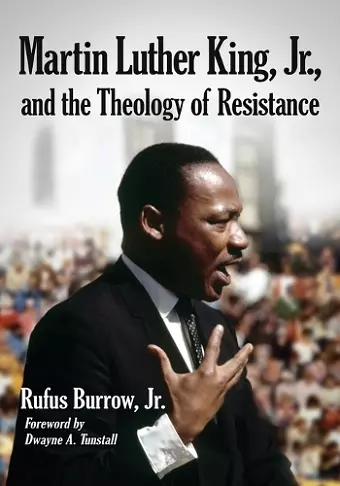Martin Luther King, Jr., and the Theology of Resistance
Format:Paperback
Publisher:McFarland & Co Inc
Published:8th Dec '14
Currently unavailable, and unfortunately no date known when it will be back

It has been nearly fifty years since Martin Luther King, Jr., was assassinated at the Lorraine Motel in Memphis, Tennessee. Appraisals of King's contributions began almost immediately and continue to this day.
The author explores a great many of King's chief ideas and socio-ethical practices: his concept of a moral universe, his doctrine of human dignity, his belief that not all suffering is redemptive, his brand of personalism, his contribution to the development of social ethics, the inclusion of young people in the movement, sexism as a contradiction to his personalism, the problem of black-on-black violence, and others. The book reveals both the strengths and the limitations in King's theological socio-ethical project, and shows him to have relentlessly applied personalist ideas to organized nonviolent resistance campaigns in order to change the world.
Instructors considering this book for use in a course may request an examination copy here.
“a helpful collection of essays on King’s social ethics...Burrow’s additions to the scholarship draw upon the life of King as a model for synthesizing social ethics and concrete social reform...it also stands as the fruit of a long career of scholarship...recommended”—Choice; “sheds light on King’s belief in the power of nonviolence and his philosophy of personalism, and Burrow weaves with finesse a historical biopic that shows the reader that the two go hand-in-hand—The Expository Times; “scholars of King and of the civil rights movement will surely benefit from Burrow’s work”—The Journal of Southern History.
ISBN: 9780786477869
Dimensions: 254mm x 178mm x 15mm
Weight: 503g
292 pages